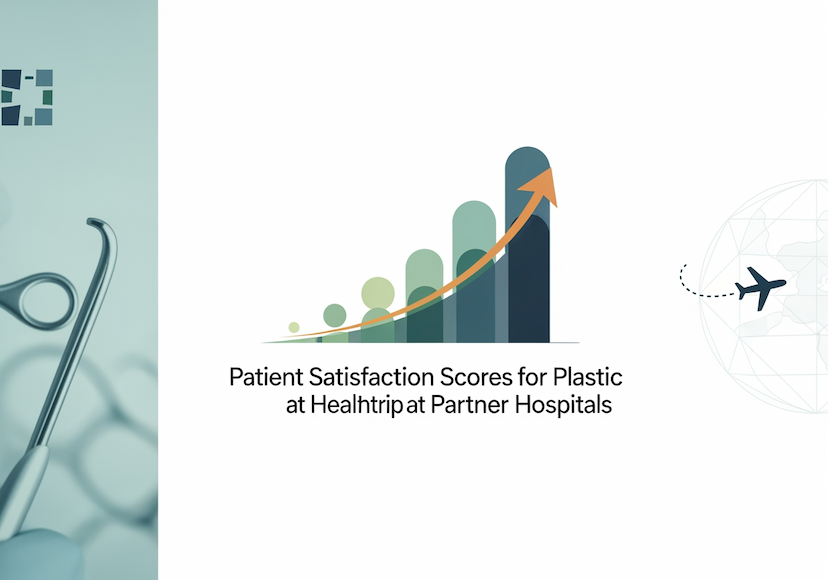
What to Expect from Pancreatic Surgery
24 Nov, 2024
 Healthtrip
HealthtripWhen it comes to treating pancreatic diseases or conditions, surgery is often the most effective option. However, the thought of undergoing pancreatic surgery can be daunting, especially if you're not sure what to expect. At Healthtrip, we understand that every individual's journey is unique, and we're committed to providing you with the best possible care and support throughout your treatment. In this blog post, we'll delve into the world of pancreatic surgery, exploring what you can expect before, during, and after the procedure, as well as the benefits and risks involved.
Understanding Pancreatic Surgery
Pancreatic surgery is a complex procedure that involves surgical intervention to treat conditions affecting the pancreas, such as pancreatic cancer, pancreatitis, or pancreatic cysts. The type of surgery you'll undergo will depend on the underlying condition, its severity, and your overall health. The goal of pancreatic surgery is to remove the diseased or damaged portion of the pancreas, restore pancreatic function, and alleviate symptoms.
Most popular procedures in India
Types of Pancreatic Surgery
There are several types of pancreatic surgery, including:
- Whipple procedure (pancreaticoduodenectomy): This is the most common surgical procedure for pancreatic cancer, where the surgeon removes the head of the pancreas, duodenum, gallbladder, and part of the stomach.
Wellness Treatments
Give yourself the time to relax
Lowest Prices Guaranteed!

Lowest Prices Guaranteed!
- Distal pancreatectomy: This involves removing the tail of the pancreas, usually to treat pancreatic cancer or pancreatitis.
- Central pancreatectomy: This is a rare procedure that involves removing the middle section of the pancreas.
- Pancreatic islet cell transplantation: This is a minimally invasive procedure that involves transplanting healthy insulin-producing cells from a donor pancreas into the liver.
Preparing for Pancreatic Surgery
Before undergoing pancreatic surgery, you'll need to prepare yourself physically and emotionally. This may involve:
- Meeting with your surgeon to discuss the procedure, risks, and benefits.
- Undergoing pre-operative tests, such as imaging studies, blood work, and nutritional assessments.
- Quitting smoking and avoiding certain medications that may interfere with the surgery or recovery.
- Eating a healthy, balanced diet to ensure optimal nutrition.
- Arranging for post-operative care and support, including transportation and accommodation.
The Surgery Itself
The day of the surgery has finally arrived, and it's natural to feel anxious or nervous. Here's what you can expect:
- You'll be given general anesthesia to ensure you're comfortable and pain-free during the procedure.
- The surgeon will make an incision in your abdomen to access the pancreas.
- The procedure may take several hours to complete, depending on the complexity of the surgery.
- You'll be closely monitored by a team of anesthesiologists, surgeons, and nurses throughout the procedure.
Recovery and Aftercare
After the surgery, you'll be taken to the recovery room where you'll be closely monitored for several hours. You may experience:
- Pain, discomfort, or numbness in the abdomen, which can be managed with medication.
- Fatigue, weakness, or dizziness, which can last for several weeks.
- Nausea or vomiting, which can be managed with medication and dietary changes.
- Follow-up appointments with your surgeon to monitor your progress and remove any stitches or staples.
- A gradual return to normal activities, including eating, exercising, and working.
Risks and Complications
As with any major surgery, pancreatic surgery carries risks and complications, including:
- Infection, bleeding, or wound complications.
- Pancreatic fistula or leakage.
- Nutritional deficiencies or malabsorption.
- Diabetes or insulin dependence.
- Psychological distress or anxiety.
Why Choose Healthtrip for Pancreatic Surgery?
At Healthtrip, we understand that undergoing pancreatic surgery can be a daunting experience. That's why we're committed to providing you with personalized care, cutting-edge technology, and a team of experienced surgeons and medical professionals. Our comprehensive approach to pancreatic surgery ensures that you receive the best possible treatment, support, and care throughout your journey. From initial consultation to post-operative recovery, we're with you every step of the way.
By understanding what to expect from pancreatic surgery, you can better prepare yourself for the journey ahead. Remember, you're not alone – our team at Healthtrip is dedicated to supporting you every step of the way. If you have any questions or concerns, don't hesitate to reach out to us. We're here to help you navigate the complex world of pancreatic surgery and get you back to living your best life.
Related Blogs

Patient Satisfaction Scores for Plastic Surgery at Healthtrip Partner Hospitals
Explore evaluations, innovations, hospital comparisons, and global success insights for

How to Choose the Right Hospital for Plastic Surgery Using Healthtrip's Criteria
Explore evaluations, innovations, hospital comparisons, and global success insights for

Latest Global Innovations in Plastic Surgery Now Available in India
Explore evaluations, innovations, hospital comparisons, and global success insights for

How Healthtrip Ensures Evidence-Based Care in Plastic Surgery
Explore evaluations, innovations, hospital comparisons, and global success insights for

Success Rates of Plastic Surgery in India Compared to Other Countries
Explore evaluations, innovations, hospital comparisons, and global success insights for

Complete Medical Evaluation Process Before Plastic Surgery
Explore evaluations, innovations, hospital comparisons, and global success insights for










